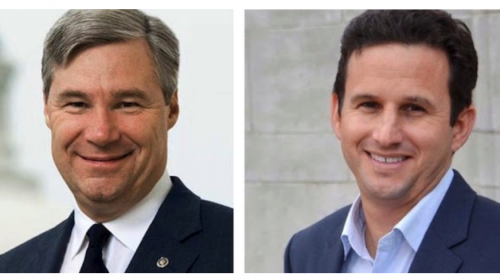Sen. Whitehouse-Schatz's Save Our Future Act Provisions To Respect Environmental Justice Concerns
By Jerry Hinkle, CCL Research Coordinator
 The Save Our Future Act (SOFA), introduced in June by Senators Whitehouse and Schatz and summarized here, is a type of carbon fee and dividend (CFD) legislation that includes strong provisions to reduce harmful air pollutants in frontline communities (see page 39 of the bill). It returns significant funds to frontline communities, as well as to American families in general, in order to support economic growth and to offset climate damages. The purpose of this analysis is to explore the potential impact of the bill's Environmental Justice (EJ) provisions.
The Save Our Future Act (SOFA), introduced in June by Senators Whitehouse and Schatz and summarized here, is a type of carbon fee and dividend (CFD) legislation that includes strong provisions to reduce harmful air pollutants in frontline communities (see page 39 of the bill). It returns significant funds to frontline communities, as well as to American families in general, in order to support economic growth and to offset climate damages. The purpose of this analysis is to explore the potential impact of the bill's Environmental Justice (EJ) provisions.
Any carbon pricing policy is expected to rapidly reduce air pollution in local communities. However, this bill attempts to further address the concern of the disproportionate impact of harmful air pollution on those most vulnerable. Specifically, it places a charge on criteria air pollutants SO2,NOx andPM2.5 when they are emitted from a “major source” within one mile of an Environmental Justice Community. The charges are $18.00, $6.30 and $38.90 per pound of the pollutant, respectively.
According to the EPA, total annual US emissions of SO2 (here), NOx (here) and PM2.5 (here) were 1.96, 8.23, and 5.64 million short tons (2,000 pounds/ton), respectively, in 2020. We do not have estimates at this point as to what proportion of these would be covered by the legislation, but presume here that combined emissions from fuel combustion, industrial processes, and waste management & recycling may serve as a useful proxy for emissions affecting EJ Communities. Of note, SO2 and NOx emissions from power plants have fallen dramatically (93% and 87%, respectively) since an emissions trading program to address acid rain was implemented in 1995. Also, though PM2.5 emissions have fallen almost 40% since 2000, they were still estimated to have caused 13% of US deaths in 2018.
What can we say then about the likely impact of these provisions within the legislation? The table below provides an estimate of the impact should emissions from the above three sources be covered by the SOFA provisions. The 2020 emissions are multiplied by the corresponding fee to yield potential annual revenues of $62 billion, $44 billion and $97 billion for each of the three criteria air pollutants covered.
The EPA has also recently analyzed the value (converted to $2021 per pound, Table 7, page 16) of the health benefit of avoided emissions from these pollutants. The benefits were estimated for each of 17 sources, and their value vary greatly by source in part because the health impact is a function of where the pollution occurs. For this analysis, we averaged the health value across three sources most likely to be covered by the bill: electric generating units, industrial point sources, and refineries.

These health benefit values are listed in the table above, and when multiplied by total emissions, provides the estimated benefit should all US emissions be abated. These values are $328 billion, $90 billion, and $1,173 billion, respectfully. Not surprisingly, the value of the emission reductions are many multiples of the fees charged.
Though these are only rough estimates of the revenue and benefits from SOFA’s EJ provisions, it is clear that pricing has worked in the past to reduce air pollution, these charges are substantial, and that this approach of making harmful air pollution significantly more expensive will guarantee improved health in EJ communities and generate revenues that can be used to bolster economic growth.
----------------------------------------
Note: For more information and CCL's overall take on the bill see the entry on the Save Our Future Act here on CCL Community's Carbon Pricing Bills in Congress resource.
* “Est. EJ Emissions” Includes emissions from electric generating units, industrial point sources, and refineries only. This amounts to a very rough estimate of what emissions would be covered by the SOFA, and is almost certainly an overestimate. “SOFA” Fee/lb simply reports the fee specified in the legislative text for the covered co-pollutants. “Emissions X Fee” reports the product of estimated EJ emissions and the Fee in millions of dollars. “Health Benefit/lb” reports the EPA estimated health benefit in $2021 per pound. “Emissions X Benefit” reports the product of the estimated EJ emissions and the reported Health Benefit per pound in millions of 2021 dollars.
Recent Posts
